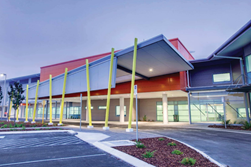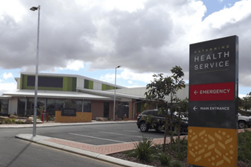Older Adult Mental Health Service
The Great Southern Older Adult Mental Health Service provides outpatient assessment and recovery focused treatment for people aged 65 and over, or 55 and over for Aboriginal people, living in the community or residential care. This team works closely with other services such as GPs and nursing homes.
Our clinics are based in Albany and Katanning and we provide visiting services to other Great Southern health services as required.
Albany

How to find us:
We are located on the Ground Floor of the Albany Health Campus.
Opening hours:
8.30am to 4.30pm on weekdays, excluding public holidays
Katanning

How to find us:
We are located at Katanning Health Service.
Opening hours:
8.30am to 4.30pm on weekdays, excluding public holidays
Once we have received your referral, it will be reviewed on the same business day. You will be contacted to book an appointment with a member of our team. If we are unable to reach you via phone, we will send a letter inviting you to come in and see us.
Referrals into the service can be by a variety of different processes which could include:
- Self-referral – where you walk in or ring and ask for help.
- Family / carers referral – where someone who cares for you asks for help.
- Doctors, GPs, hospital or other primary care providers – when they feel specialised services may help you.
- Other service providers – schools, court, government agencies, support groups, private counselling, psychology or support services and non-profit organisations
What to expect at the first appointment?
The first appointment usually takes an hour, where we aim to:
- Understand some of the problems you are facing and begin working together.
- Discuss options for help and treatment that we or other agencies can offer.
- Connect you with an appropriate person or service to suit your specific circumstances which could include:
- Returning to your GP
- Being provided with self-help material
- Receiving Individual treatment
- An assessment with a psychiatrist
- A referral to other community-based services
The team will treat all information in confidence. Your information will remain at the mental health clinic. Permission is sought in writing before contacting other agencies unless there are concerns about safety.
Information may be shared with other mental health services that are providing care to you. Find out more about your rights and responsibilities:
If you have a comment, complaint, or compliment to make about our service then please do not hesitate to let us know.
In person
- Talk to the staff caring for you; or
- Ask to speak to a senior staff member or our service manager; or
- Ask to speak with an Aboriginal Mental Health Worker.
Email us
- Tell us what happened, where and when with dates and times, if possible.
- Include information on who was involved.
- Let us know what you would like to see happen because of your feedback.
- Please include your contact details if you would like someone to contact you.
- You can also contact the Great Southern Executive Director with your feedback directly.
Online
You can publicly and anonymously share your story about your experience through the Care Opinion website. The website allows you to tell us what is important to you, and we can show how we are listening and responding to patients, carers and families to improve our services.
You can also complete surveys and questionnaires about your experience with us so we can continue to better our services. Taking part in the surveys is voluntary and anonymous:
- Your Experience of Service - Adult (PDF, 245Kb)
- Experience of Service Questionnaire 9 - 11 years old (PDF, 113Kb)
- Experience of Service Questionnaire 12 - 17 years old (PDF, 138Kb)
- Experience of Service Questionnaire - parent and carers (PDF, 139Kb)
You can reach out to independent authorities to help resolve any complaints you have, including:
- The Health and Disability Service Complaints Office, an independent Statutory Authority providing an impartial complaints resolution service for complaints about health, disability and mental health services.
- The Mental Health Tribunal, which safeguards the rights of involuntary patients in Western Australia.
Involving consumers and carers
The Great Southern Mental Health Consumer and Carer Advisory Group (the CCAG) is a diverse group of consumers and carers with lived experience of mental health issues who work in partnership with the Great Southern Mental Health Service to improve mental health services for the community.
The CCAG ensures consumers and carers are heard, acknowledged, and valued in the design, development and delivery of mental health services. To contact the CCAG, please call (08) 9892 2440 or email gs.cmh@health.wa.gov.au.If you’re looking for after hours or immediate access to mental health support, you can call a helpline:
- Rural Link(afterhours mental health): 1800 552 002
- Lifeline: 13 1114
- Suicide Call Back Service: 1300 659 467
- Beyond Blue: 1300 224 636
- Beyond Blue Youth: 1300 224 636
- Domestic Violence/Sexual Assault/Abuse: 1800 017 303
- Kids Helpline: 1800 551 800
- Kids Helpline (Parents): 1800 654 432
- Headspace: 9943 8111
- Poisons Information Centre: 13 11 26
- Alcohol and Drug Support Line: 1800 198 024
- Parent and Family Drug Support: 1800 653 203
- 13YARN: 13 92 76
- 1800 Respect (Sexual Assault, domestic family violence): 1800 737 732
- Here For You: 1800 437 348
If you’re looking for more information on mental health services, visit:

